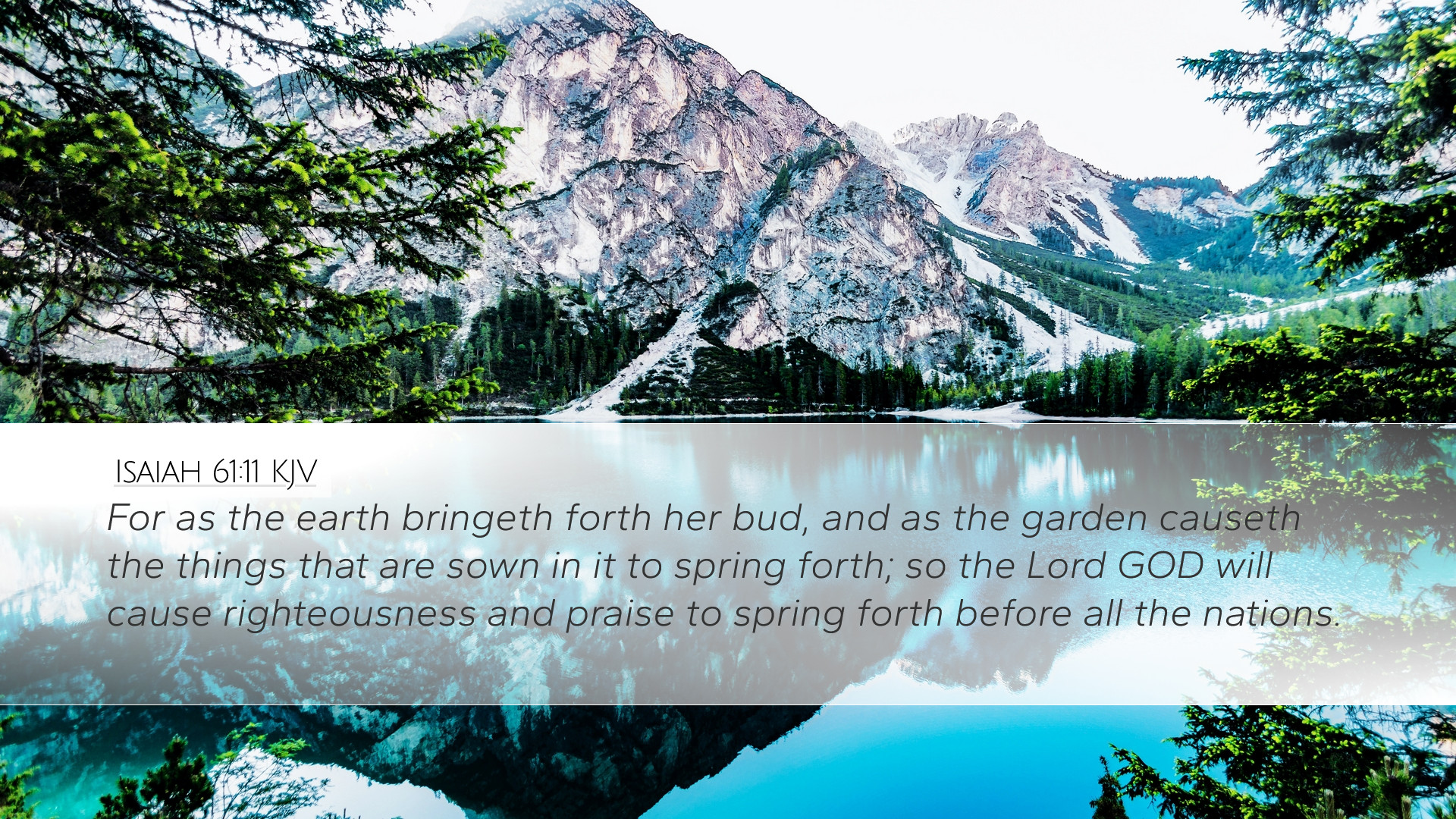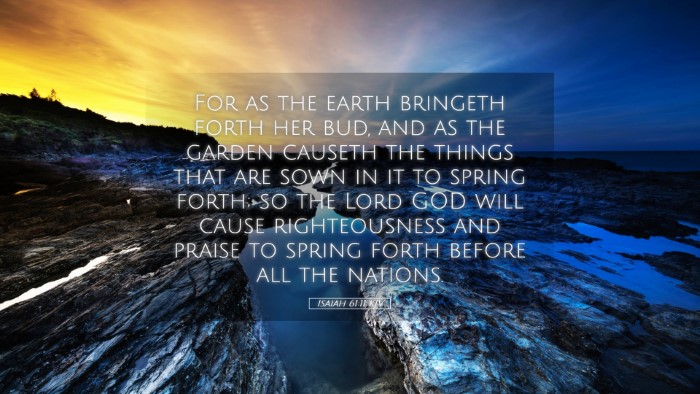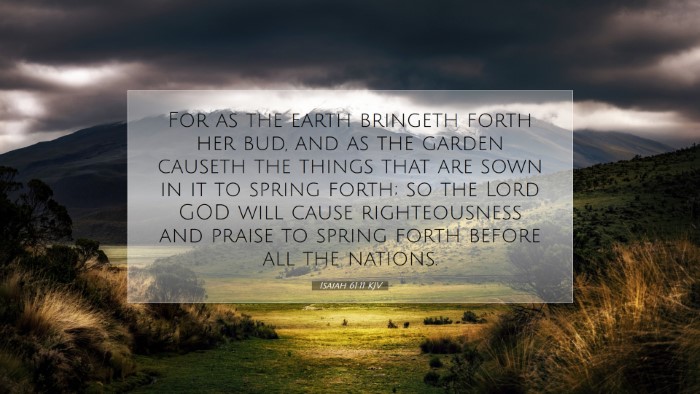Commentary on Isaiah 61:11
Isaiah 61:11 states: "For as the earth brings forth its bud, and as the garden causes the things that are sown in it to spring forth; so the Lord God will cause righteousness and praise to spring forth before all the nations." This verse encapsulates profound themes of divine restoration, growth, and the ultimate triumph of God's righteousness.
Contextual Background
To fully appreciate the significance of this verse, we must understand its context within the Book of Isaiah. This prophetic work addresses Israel during a time of despair and captivity, promising them hope and salvation. Chapter 61 portrays a future whereby the anointed one (often interpreted as the Messiah) brings good news to the afflicted, binds up the brokenhearted, and proclaims liberty to captives.
Thematic Insights
- Divine Assurance of Growth: Just as nature brings forth growth and vibrancy, so too will God’s work manifest in righteousness.
- The Universality of God’s Plan: The verse points to a time when righteousness and praise will not only be evident within Israel but will resonate throughout all nations.
- Symbolism of the Earth and Garden: The imagery compares God’s righteousness to the earth bringing forth its bud, emphasizing organic and divine growth.
Commentary Insights
Matthew Henry's Perspective
Henry emphasizes the notion of divine blessing being similar to the natural order in which the earth produces fruitfulness. He notes that just as flowers and crops bloom, so too will the Lord's grace and righteousness flourish among His people. Righteousness is seen as inseparable from God's character, and its manifestation in praise takes place when people recognize and respond to His sovereignty.
Albert Barnes' Observation
Barnes highlights the prophetic nature of this verse, indicating that it speaks of the fresh and vital influences of the Spirit of God. He underlines that the promise holds a dual focus: first, on the personal transformation of individuals who receive God's righteousness, and second, on the broader impact of such transformation on nations. Barnes asserts that when righteousness thrives, so does worship and praise, leading to a cultural renewal that reflects God’s glory.
Adam Clarke's Analysis
Clarke focuses on the characteristic of God's righteousness as being inherent to the faithful life. He interprets the 'springing forth’ as a metaphor for spiritual revival and renewal, which not only impacts the people of God but also their neighboring nations. Clarke notes the importance of understanding that true righteousness produces an accompanying praise that is observable and tangible among people.
Theological Reflections
Isaiah 61:11 serves as a powerful reminder of God's ability to breathe life into barren situations. The parallels drawn between natural growth and spiritual awakening highlight that God’s actions are both creative and restorative. The theological implications of this verse resonate with the understanding that when God's righteous judgment comes to fruition, it leads to widespread acknowledgment of His presence and holiness.
Implications for Pastoral Ministry
For pastors, this verse reinforces the importance of preaching a gospel that emphasizes transformation and renewal. The call to actively participate in the cultivation of righteousness and praise mirrors the divine activity described by Isaiah. Shepherding a congregation means encouraging their commitment to justice and righteousness, reflecting God's kingdom values in every sphere of life.
Application in Theological Education
Students and scholars of the Bible are challenged to examine the intersection between scripture and societal transformation. Isaiah 61:11 acts as an invitation to study the implications of God’s righteousness in both ancient and modern contexts. This passage accentuates the urgency of living out a faith that does not merely exist in personal piety but extends to the collective well-being of communities and nations.
Concluding Thoughts
In summary, Isaiah 61:11 captures the essence of God’s redemptive work through metaphorical language that links the physical and spiritual realms. The insights drawn from Matthew Henry, Albert Barnes, and Adam Clarke illuminate the richness of this verse, making it equally relevant for today’s readers seeking to understand God’s promises. The themes of growth, restoration, and the overflow of praise and righteousness serve as a vital encouragement for all believers to engage actively in their faith journey.


